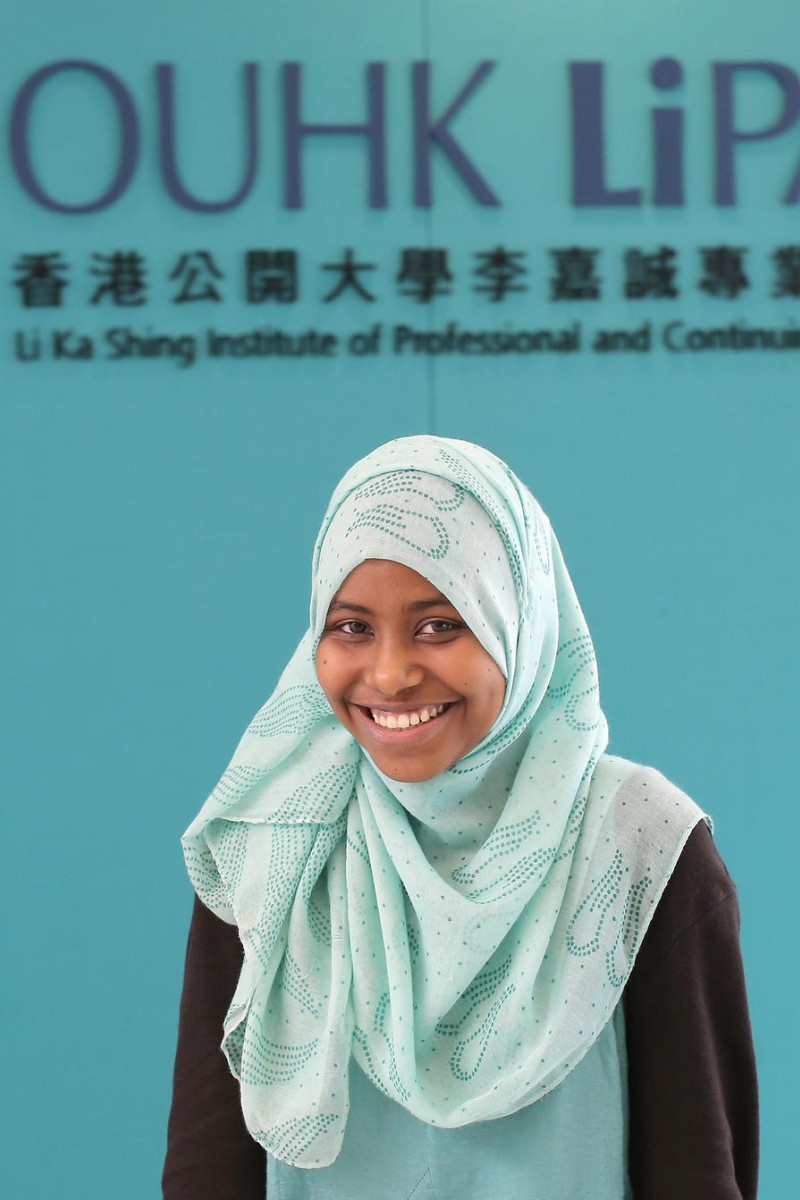
Like many ethnic minorities in Hong Kong, Etilib Saga speaks Cantonese, but reading and writing Chinese is a difficult skill to master
 Etilib Saga, 19, is studying childhood education.
Etilib Saga, 19, is studying childhood education. In a mostly Chinese society like Hong Kong, it is inevitable that not knowing the language will put you at a disadvantage in school and job applications. Despite the challenge, 19-year-old Etilib Saga believes that if she is willing to work hard, she will achieve her dreams.
Saga was born in Shenzhen and moved to Hong Kong when she was one year old. Her Sudanese parents run a business on the mainland. "My parents don't speak Cantonese. We speak Arabic at home. I only got to learn Cantonese when I went to primary school," she says.
Though Saga understands Cantonese, reading and writing Chinese is more difficult for her. "I took the Diploma of Secondary Education exam like a local student except for Chinese. I took GCSE Chinese instead, knowing that DSE Chinese would be too much for me to handle."
Without DSE Chinese results, she failed to enter a government-funded university. "I was really grateful when the Open University Li Ka Shing Institute of Professional and Continuing Education accepted me for a higher diploma in early childhood education," she says. "They accepted my GCSE Chinese results and all my other achievements. English is the medium of instruction of the programme so I have no trouble studying."
The move to OpenU is a big adjustment for Saga, who studied in ethnic-minority schools - Li Cheng Uk Government Primary School in Sham Shui Po and Islamic Kasim Tuet Memorial College in Chai Wan. "It was a new experience for me to be in a class that is mostly local. I've made many new Chinese friends and get a lot of chances to speak Cantonese, and my classmates also get the chance to practise their English," she says.
Although Saga has no problem with her studies, she is worried that some local employers will not accept her religion, Islam. "I did an internship at an international kindergarten in my first year. The boss appreciated my ability to teach but she had a problem with me wearing my hijab [head covering] to work. She told me if I were to get a job at the school after I graduate, I would need to remove my hijab. I am a Muslim and I have to wear that. I was quite discouraged and frustrated by that experience."
Saga felt down for a little while after that, but she has a strong belief that she is a capable teacher. Finally, in her second internship, she found a place that welcomed her with open arms.
"I am lucky to find a boss who is totally comfortable with my religion and me wearing a hijab to school. Now I have a job offer waiting for me, right after I graduate. My family and I are really excited about it. It is a dream come true," she says.
Although Saga has a job lined up, she does not plan to end her studies. She will continue her studies at OpenU on a part-time basis as she begins her career this September.